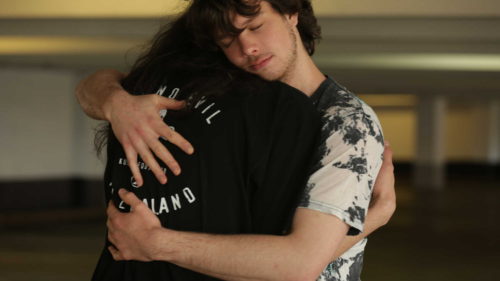
You! You are an aggressor! There is no way that you can exist on this planet otherwise. All of us have to carve a niche out of Nature, with violence or treachery, for there is simply no other way to survive. So malicious are you that you commit the ultimate evil – to continue to exist!
Every living creature has a need to metabolise in order to stay warm. This metabolisation requires energy, which means food, which means a need to eat, which means a need to kill. In order to live, you have to kill!
Every bit of food you have ever eaten was a living being that had to be killed so that you could eat it! What right do you have to assert the primacy of your own existence over that of another being, over a fellow creation of God? The morally correct thing to do, in order to avoid bringing suffering into the world, is to lie down and starve to death!
Worse, as a mostly hairless ape, you also have a need for shelter – and there’s no other way to build a house than by carving a space out of Nature for yourself. This means destroying the habitats of other creatures.
150 square metres of floor space means 150 square metres of land on which no forests can grow, and through which no streams can run. It’s 150 square metres worth of trees that had to be chopped down, with all the bird and insect life supported by it destroyed.
Neither can you escape your own energy needs. Driving a car around consumes oil – a finite energy source, and one that has to be extracted at the price of more environmental damage. Reading this website requires electricity, which requires energy. All the goods in your house were shipped to you by transportation methods that required energy.
Collectively, these demands meant even more coal mines put down, even more oil wells sunk, even more valleys wiped out by hydroelectric dams. To use energy is to render parts of the Earth to chaos!
There’s nothing you can do about any of these things! To continue to exist is to destroy – for only through destruction can one continue to exist!
To reproduce causes even more damage. The facts are stark: the single most ecologically destructive move a person can make is to bring another human being into the world – a human who will have to eat, to shelter themselves and to use energy, and at ever-increasing appetites!
Worst of all, merely to keep existing means you run the risk of bringing more conscious life into the world to suffer. Even if you don’t intend to breed, you might meet a certain person who causes a massive dump of some hormone to be released by your brain and then you fall in love and nek minnit you have eight children, all of whom must find their own way to come to terms with the fact that they are mortal creatures in a world of ceaseless slaughter!
If you should stop existing, on the other hand, not only does it become impossible to bring more conscious suffering into the world in the form of human offspring, but one also vacates a niche within the biosphere that can (and will) be occupied by gentler, kinder forms of life.
Think of the biomass of the worms that would eat your corpse!
You should be killed!
*
If you enjoyed reading this essay, you can get a compilation of the Best VJMP Essays and Articles of 2017 from Amazon for Kindle or Amazon for CreateSpace (for international readers), or TradeMe (for Kiwis).



